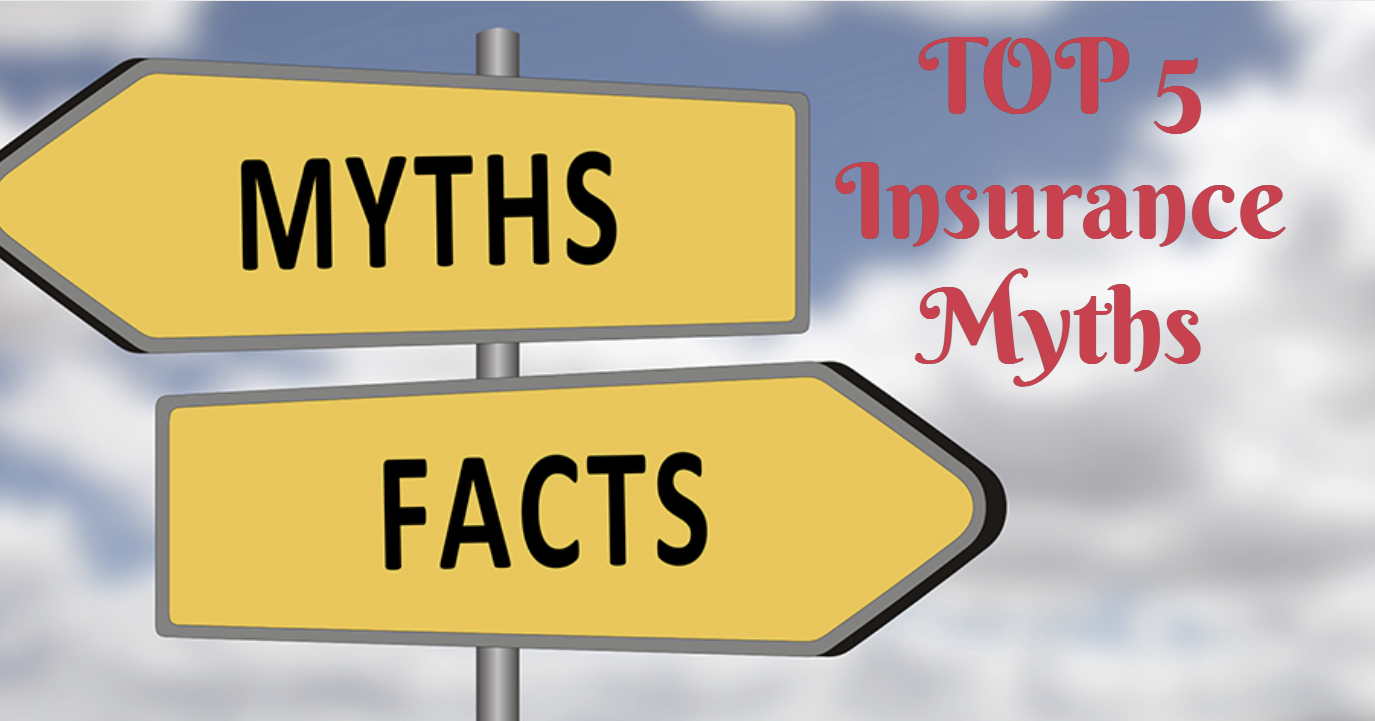
When it comes to insurance, most of us have heard a myth or two. Whether it’s advice passed down from friends or simply something we’ve assumed, many people hold misconceptions about insurance that can ultimately affect their decisions. The world of insurance is changing rapidly, and these outdated beliefs may not only cost you money but also leave you underprepared when you need protection the most.
In 2025, the insurance industry is undergoing a major transformation with new technologies, regulations, and innovative products. Understanding what’s fact and what’s fiction will help you make smarter decisions when it comes to your coverage. Let’s debunk five of the most common insurance myths and set the record straight.
Table of Contents
Toggle1. Myth: "Cheapest Insurance Is Always the Best Choice"
When shopping for insurance, it’s easy to fall into the trap of looking for the cheapest option. After all, who doesn’t want to save money on premiums? However, opting for the lowest-priced policy may not always be the best choice, and it’s important to understand why.
The Truth: The Best Coverage Often Comes at a Fair Price
While the price is an important factor, it’s not the only one to consider. Many people assume that the cheapest policy offers the best deal, but in reality, it may leave you with gaps in coverage that could prove costly down the line.
For example, imagine you have a low-cost car insurance policy that doesn’t cover certain types of accidents or damages, like hail damage or theft. If an accident happens, you might find yourself paying out-of-pocket for repairs or replacements that would have been covered with a slightly higher premium.
In 2025, many insurers offer more customized options, thanks to advancements in AI and telematics (the technology that tracks driving habits). This means you can find a plan that suits your needs without overpaying. However, the cheapest option often sacrifices essential coverage for lower premiums.
Expert Insight
“When comparing insurance plans, always prioritize value over cost. It’s about finding a balance between what you’re paying and the protection you need,” says Jane Smith, an insurance advisor with over 15 years of experience.
2. Myth: "Insurance Companies Always Deny Claims"
If you’ve ever heard horror stories about insurance companies denying claims, you’re not alone. Many people believe that insurers are in the business of rejecting claims, and they’re quick to assume they’ll be denied when they need help most.
The Truth: Most Claims Are Approved – If You’re Prepared
While it’s true that insurance claims can sometimes be denied, it’s usually due to issues like misreporting, missing information, or policy exclusions—not because the company is trying to avoid paying out. In 2025, with the help of AI and advanced claims technology, insurers are becoming more efficient and transparent when it comes to handling claims.
Most insurance companies aim to build trust with their customers, which is why they have clear guidelines for claims and work to resolve them quickly. If a claim is denied, it’s usually because of misunderstandings or errors on the part of the policyholder, not intentional refusal by the insurer.
Real-Life Example
Sarah, a homeowner in Texas, had her home damaged in a severe storm. After submitting her claim, she was initially told it would take several weeks to process. However, she used the insurer’s online portal to upload photos of the damage and the system automatically flagged the claim for expedited review. The insurer was able to approve the claim within 48 hours.
Expert Insight
“To avoid claim denials, always read your policy thoroughly. The more documentation you have, the better chance you have of a smooth claims process,” advises Michael Davis, a claims adjuster with 20 years of experience.
3. Myth: "You Only Need Life Insurance If You Have Dependents"
Many people believe that life insurance is only for those with a spouse, children, or other dependents to support. While it’s true that life insurance is essential for anyone responsible for another person’s financial well-being, it’s also important to consider how life insurance can protect you, even if you’re single.
The Truth: Life Insurance Can Help Cover Debts and Expenses, Even If You’re Single
In 2025, life insurance isn’t just about supporting dependents—it’s about covering your outstanding debts and ensuring that your loved ones aren’t burdened with your financial obligations after your passing.
For example, if you have student loans, credit card debt, or a mortgage, life insurance can help pay off these debts so they don’t become a financial strain on your family or friends. Even if you don’t have dependents, your passing can still leave behind financial burdens that a life insurance policy can cover.
Expert Insight
“Life insurance isn’t just for families. It’s also an important tool for anyone who wants to ensure their debts are covered, regardless of their marital or parental status,” says Claire Roberts, a financial planner specializing in insurance.
4. Myth: "Home Insurance Covers Everything"
Many homeowners assume that their home insurance covers all types of damages, including natural disasters, water damage, and even personal belongings. However, this assumption can lead to costly surprises when filing a claim.
The Truth: Home Insurance Has Exclusions – Know What’s Covered
While home insurance is designed to protect your property, there are often exclusions in standard policies. For example, most home insurance policies don’t cover flood damage or earthquakes, and some may have limited coverage for expensive items like jewelry or electronics. In 2025, insurers offer specialized add-ons and policies that allow you to tailor your coverage to your specific needs.
Real-Life Example
Mark and Lisa purchased a home insurance policy that seemed comprehensive, but when their basement flooded after a heavy rain, they found out that their policy didn’t cover flood damage. They were forced to pay out-of-pocket for repairs because they didn’t have flood insurance.
Expert Insight
“Before purchasing home insurance, it’s essential to review your policy and ask questions about exclusions. Floods, earthquakes, and even some types of water damage may require separate coverage,” says Jessica Lee, an insurance specialist at HomeSafe Insurance.
5. Myth: "You Don’t Need Health Insurance if You’re Young and Healthy"
This is one of the most common myths, especially among younger adults who feel invincible in their 20s and 30s. Many people believe they can skip health insurance because they’re in good health and rarely visit the doctor.
The Truth: Health Insurance Provides Protection for the Unexpected
Even if you’re young and healthy, accidents and unexpected medical issues can happen at any time. Whether it’s a sports injury, an emergency room visit, or an unforeseen illness, health insurance ensures that you’re protected from high medical costs. In 2025, health insurance policies are becoming more flexible, with plans that offer basic coverage and the option to add additional benefits as needed.
Moreover, health insurance isn’t just about covering illness or injury; it also includes preventive care, like regular checkups, vaccinations, and screenings, which can help detect issues before they become serious.
Expert Insight
“Skipping health insurance is a risky gamble. The unexpected can happen at any time, and without insurance, you could face major financial consequences,” advises Dr. Rachel Brown, a health policy expert.
Conclusion: Navigating the Insurance Landscape in 2025
Insurance myths can cloud your judgment and cost you both time and money. By debunking these common misconceptions, you’re in a better position to make informed decisions about your coverage. As the insurance industry evolves in 2025 with smarter technologies, more personalized plans, and improved customer service, it’s crucial to stay updated on what’s fact and what’s fiction.
Before choosing your next insurance policy, be sure to ask the right questions, compare different plans, and fully understand what’s included and excluded. The goal is to protect yourself, your family, and your assets in the best way possible—and that requires knowledge, research, and a clear understanding of what you’re signing up for.

